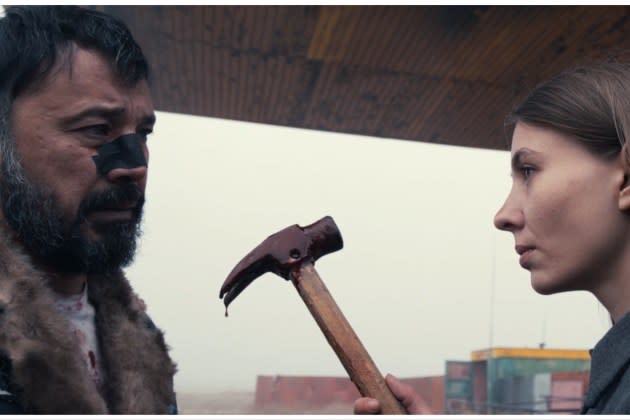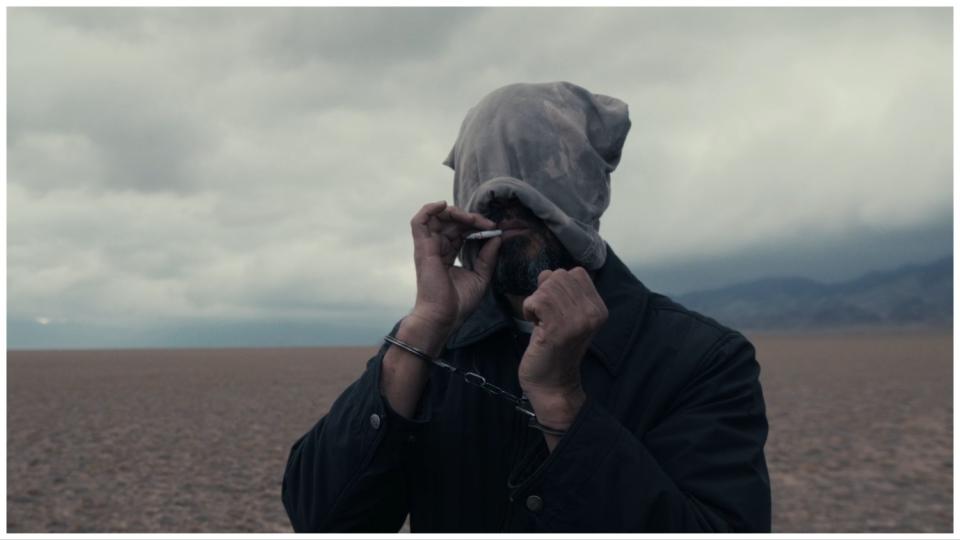‘Steppenwolf’ Director on How Hermann Hesse, John Ford, Samurai Stories Inspired Violent Kazakh Film, Teaser Debuts, Next Project Revealed (EXCLUSIVE)

There is a certain inevitability about a film inspired by Hermann Hesse’s novel “Steppenwolf,” first published in German in 1927, and two famous Westerns of the 1950s — John Ford’s “The Searchers,” and Howard Hawks’ “Red River.” The film, also called “Steppenwolf,” has its world premiere at International Film Festival Rotterdam in the Big Screen Competition section. Its teaser debuts on Variety exclusively (below).
In acclaimed Kazakh director Adilkhan Yerzhanov’s latest film, two characters who are essentially loners existing outside of the usual moral boundaries of the world come together united in a common task: to save a small boy who has gone missing.
More from Variety
Yerzhanov takes universal themes from Hesse’s novel and the later Hollywood Westerns, to plumb the depths of where man’s spirituality disappears into the depths of his animal origins. To explore what he calls a story of “two different heroes, two opposing characters, who are living through extreme situations” he uses the Kazakh steppe as the bleak backdrop to a violent tale.
The cultural significance of the male characters who is a lone wolf is also significant: in Turkic culture, the nomadic people of the Kazakh steppe believe their ancestors were raised by wolves.
The nods to classic Westerns are immediately obvious to those with even a passing acquaintance with the genre: a lone figure framed in a doorway, shot from behind, looking out onto a landscape of flat scrublands; the casual violence meted out to the amoral inhabitants of this stark world. More subtly, the film, Yerzhanov says, also draws upon the tradition of Samurai stories — where the hero’s story arc is pre-ordained.
“The film is also inspired by Samurai films, in which the character from the very beginning is heading towards his death. You know there is only one ending for that character — this is often the structure of Samurai films,” Yerzhanov tells Variety.
“His past and future are one and the same. He is already on this path. If he had not been involved with the woman and trying to save the child, he would have faced another situation that has the same result. His destiny is dictated already.”
Deepening the sense of dissonance, Yerzhanov employs direct quotations from Hesse’s novel as on-screen text commentaries that hint at the inner world of the film’s brutal protagonist. In this way, the viewer is beckoned to read the film through the characters, images, and commentary. The quixotic nature of human beings, the reasons they do evil — and whether evil is ever justified in the pursuit of more noble gains — are fleshed out in the woman’s character.

“This moral dilemma can be followed by looking at how evil is used in the story — whether it is right to use evil in order to save the child,” Yerzhanov notes.
“The hero that changes the most is the female character — from a woman who seems incapable of evil, she become a heroine who uses evil to save the child. But that does not mean she is worse; I think that she is the central character of the film.”
Yerzhanov says that currently Kazakh film is undergoing a renaissance, with plenty of projects in development and production. He adds that the film’s producer — Kyiv-born Alexander Rodnyansky who made his name in the Russian film industry before leaving Moscow when Putin ordered Russian forces to attack Ukraine in February 2022, brought “invaluable advice to structure and script.”
His next project — “The Moor” — which he has just started to develop, is about a former soldier struggling with Post Traumatic Stress Disorder.
Best of Variety
Sign up for Variety’s Newsletter. For the latest news, follow us on Facebook, Twitter, and Instagram.

 Yahoo Lifestyle
Yahoo Lifestyle 
